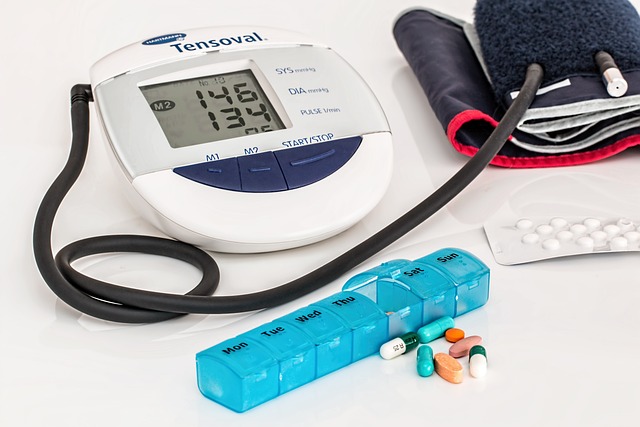Testosterone is a crucial hormone for male health, with normal ranges (270-1070 ng/dL) indicating overall well-being in the UK. Deviations may signal issues like hypogonadism or prostate problems. The UK Diabetes Blood Test integrates glucose, insulin resistance, and cholesterol analysis to diagnose conditions like type 2 diabetes and metabolic disorders. This comprehensive approach enables early interventions and personalized treatment plans, significantly improving long-term health outcomes. Men considering testosterone testing should consult healthcare professionals who can guide them through the process, often involving a standard blood sample after fasting.
“Uncover the power of testosterone testing – a vital tool in men’s health diagnosis. This comprehensive guide explores how UK diabetes blood tests can reveal underlying health issues, from hormonal imbalances to diabetes.
Learn about testosterone levels, their significance, and how a simple blood test can provide insights into your overall well-being. We’ll navigate the process, offering practical advice on when and how to get tested, ensuring men can take charge of their health effectively.”
- Understanding Testosterone Levels: The Basics for Men's Health
- UK Diabetes Blood Test: A Comprehensive Approach to Diagnosing Male Health Issues
- When and How to Get Tested: A Practical Guide for Men
Understanding Testosterone Levels: The Basics for Men's Health
Testosterone is a hormone that plays a pivotal role in men’s health and well-being. It is primarily produced by the testicles, with small amounts also synthesized in the adrenal glands and ovaries. Understanding testosterone levels is essential for identifying potential health issues, especially among men in the UK who may require a diabetes blood test or other diagnostic procedures. Levels can vary greatly depending on age, physical activity, diet, and overall health; therefore, a baseline understanding of normal ranges is crucial.
For adult men, typical testosterone levels typically range between 270-1070 nanograms per deciliter (ng/dL) or 9.4-38.6 nanomoles per liter (nmol/L). Any significant deviation from this range may indicate an underlying medical condition. Low testosterone levels (hypogonadism) can lead to various symptoms, including decreased muscle mass, fatigue, reduced sexual drive, and changes in mood. On the other hand, excessively high levels could be a cause for concern as well, potentially linking to conditions like prostate issues or certain types of tumors. Hence, regular testing, often recommended by healthcare professionals, becomes vital for maintaining optimal men’s health.
UK Diabetes Blood Test: A Comprehensive Approach to Diagnosing Male Health Issues
In the UK, a comprehensive approach to diagnosing male health issues has emerged through the integration of the diabetes blood test. This test serves as a powerful tool in identifying various conditions, including type 2 diabetes and other metabolic disorders. By analysing blood samples for key markers such as glucose levels, insulin resistance, and cholesterol profiles, healthcare professionals can gain valuable insights into an individual’s overall health.
The UK Diabetes Blood Test is not limited to diabetes alone; it provides a holistic view of male health by screening for potential red flags associated with cardiovascular diseases, liver problems, and even certain forms of cancer. This comprehensive strategy ensures that men receive early interventions and personalised treatment plans, ultimately improving their long-term health outcomes.
When and How to Get Tested: A Practical Guide for Men
In the UK, men considering testosterone level testing for potential health issues should first consult a healthcare professional. This is crucial as they can provide guidance tailored to individual needs and help interpret test results accurately. A doctor might recommend a UK Diabetes Blood Test, which measures various markers, including testosterone, to assess overall health.
The testing process typically involves providing a blood sample, usually taken from the arm, at a clinical setting or a mobile testing unit. It’s essential to fast for a specified period beforehand to ensure accurate results. Men should discuss any concerns about the procedure with their healthcare provider and be aware that regular testing is often required to track changes in testosterone levels over time.
Testosterone level testing, often coupled with a comprehensive UK Diabetes Blood Test, serves as a powerful tool for diagnosing male health issues. By understanding the basics of testosterone levels and knowing when to get tested, men can proactively manage their health. This practical guide equips individuals to take charge of their well-being, ensuring early detection and effective treatment of potential health challenges.
